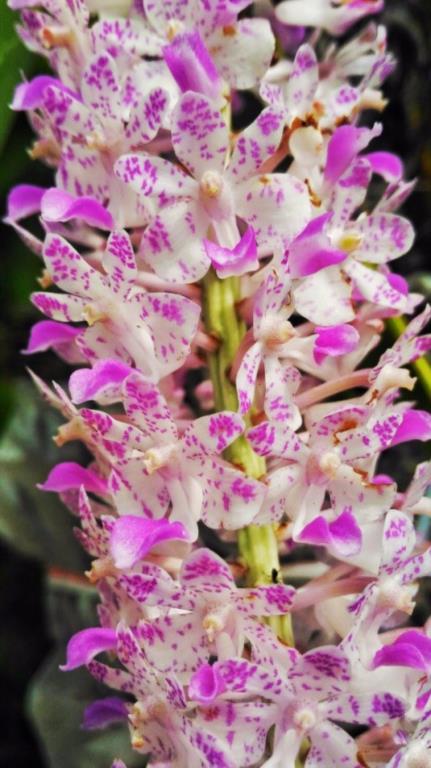Assam, the land of mountains and the
mighty Brahmaputra! Come April and you will find yourself in the midst of an
ethereal festival, Bohag Bihu. Bihu is now synonymous with Assam - its culture
and sentiments. The term “Bihu” originated from a Sanskrit word “Bishu”, which means that people ask for prosperity from the Gods during the sowing and harvesting season. It also implies Bihu dance or naas and Bihu folksongs or geet.
Basically, Bihu is a set of different festivals celebrated
across the year with much pomp and gaiety: Rongali or Bohag Bihu observed in
April, Kongali or Kati Bihu observed in October, and Bhogali or Magh Bihu observed in January. Bihu like many other Hindu festivals is connected
with agriculture and rice in particular as Assam has a strong agrarian society.
Bhogali Bihu is basically a harvest festival and accompanies
lots of food preparation with newly harvested rice. Bohag Bihu is a sowing
festival where people along with merriment pray to Gods for good harvest. Kati
Bihu is associated with crop protection and worship of plants and crops. Cows
are much loved and revered in Assamese society. Today Bihu is also celebrated
by overseas Diasporas who are living worldwide.
Bohag Bihu also বহাগ বিহু in Assamese, is celebrated in mid-April. It is
also known Rongali Bihu. This Bihu achieves more significance as it celebrates
the onset of the Assamese New Year and the coming of the Spring. Bohag Bihu also marks
the change in the seasonal cycle and people greet the coming season of spring
with much enthusiasm. Bohag Bihu or Rongali Bihu is celebrated over a period of
seven days. There are various phases and significance of each of the seven days
of Bihu. The most important events are:
- Goru Bihu or cow Bihu, where the cows are washed and
worshipped, which falls on the last day of the previous year.
- Manuh (human) Bihu on April 15, the New Year Day. This is the day of getting cleaned up, wearing new clothes and celebrating and getting ready for the New Year with fresh vigour.
- Gosai (Gods) Bihu where statues of Gods, worshipped in all households are cleaned and worshipped asking for a smooth new year.
The festival, merry making and feasting continue over seven days.
Farmers prepare the fields for cultivation of paddy and a sense of joy is all around.
The women make pitha, larus (traditional
food made of rice and coconut) and Jolpan (special breakfast) which gives the real essence of the season. Some traditional Bohag Bihu special delicacies that you can devour during festival are –
- Khar extracted from burnt banana stems is well known
to cleanse your stomach
- Aloo Pitika is a mashed potato dish teamed with chopped
onions, green chillies, coriander leaves, salt and a dash of mustard oil
- Xaak are leafy vegetables which are all lightly
stir-fried in oil sans masalas
- Masor Tengaa, a dish
prepared with fish and souring agents
are used to make the curry
- Mangsho, mutton curry generally enjoyed with luchi or
pulao.
Apart from this, Rimjhim in her blog Arunodoi also points out few things which make Bohag bihu so
special and elevates the overall feeling.
- Gamusa: This piece of cloth is weaved by people themselves and is gifted to near and dear ones.
- Dhol: Without ‘Dhol’ Rongali Bihu is incomplete. No one can stop themselves from dancing after hearing the sound of Dhol.
- New clothes: Shopping new cloth was the most exciting thing of Bihu.
- Song of Cuckoo: Cuckoo notifies that spring has arrived. Sweet song of this bird spreads the breeze of Bohag Bihu to everyone.
- Kopou Phool or Foxtail Orchid: Likewise voice of Cuckoo, Foxtail orchid signifies Bohag Bihu. This beautiful flower is an integral part of Bihu season.
 Kopou phool or Foxtail Orchid which signifies Bohag Bihu
Kopou phool or Foxtail Orchid which signifies Bohag Bihu
With its unique culture, Bihu is a festival of one and all in
Assam. For the farming community whose livelihood is mainly dependent upon
agriculture, Bihu holds special meaning.
However, Bihu celebrations are not restricted to the farming
community alone. They are also celebrated in urban areas even if of recent
origin. Here Bihu celebration committees organize special Bihu functions where
local people participate in various competitions and artists are invited from
all over to make the occasion more special.
The spirit of Bihu is universal and includes people of all
castes and creed. In a way it binds the the Assamese community together.
Author is an environmentalist & nature educator by heart and by
profession. He is a trained wildlife biologist and works as an Ecologist in Aaranyak,
a research organization in Northeast India. His main interest lies in studying
the natural history of animals and researching Indian history. He is fascinated
by the culture and customs of communities of India especially the tribes.
Readings and References:
1. S. D. Sharma (2010). Rice: Origin, Antiquity and History. CRC Press. pp. 56, 60–61. ISBN 978-1-4398-4056-6
2. Goswami, Praphulladatta (1967). "Hindu and Tribal Folklore in Assam". Asian Folklore Studies. JSTOR. 26 (1):
19. doi:10.2307/1177697
3.https://www.ndtv.com/food/bohag-bihu-2018-date-significance-history-celebration-and-feast-1835591
4. http://rajreetasen141046.blogspot.in/2015/09/bihu-festival-of-assam_20.html
5. http://www.bihufestival.org/significance-of-bihu.html
6 https://rimzkashyap.wordpress.com/2017/04/04/8-things-that-make-bohag-bihu-so-special/
Also Read
1. The Bonfires of Magh Bihu
2. Assam the land of Devotion